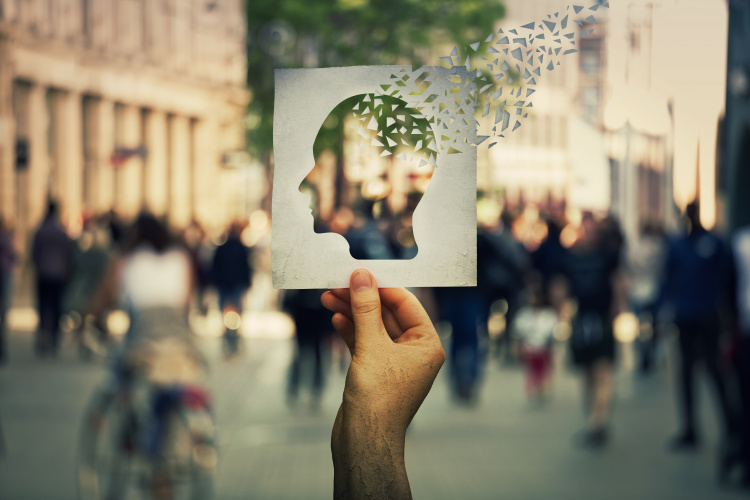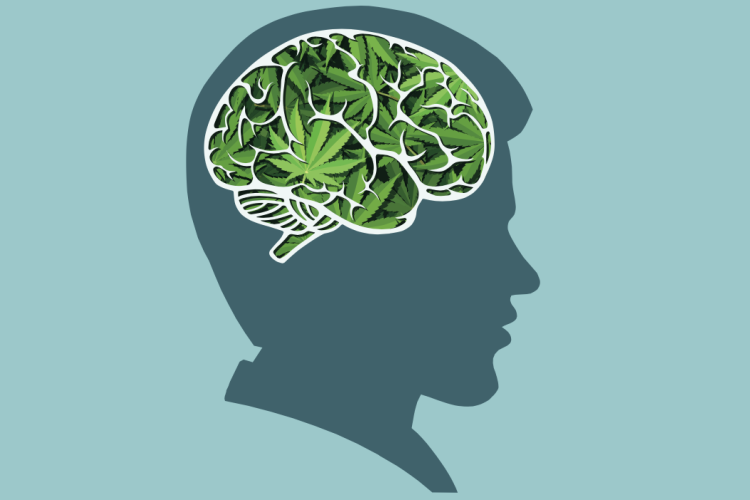Once you experience them, you never forget the remarkable effects that come with ingesting cannabis. But how can a single plant impart so many different effects on perception, thought, mood, appetite, and other functions of the body and mind?
There’s a lot that goes into how cannabis effects the brain, with many different pathways and processes. If you’re curious for more, you’re in the right place! Learn the ins and outs of the brain and cannabis and get all your questions answered, including:
- What causes cannabis’s euphoric effects?
- Does cannabis affect memory?
- How does cannabis affect the perception of time?
- And more!
Ready? Let’s dive in.
What Causes the Euphoric Effects of Cannabis?
The euphoric effects of cannabis come from a family of compounds called cannabinoids, which include the powerhouses THC and CBD. Considered the major “active” ingredient in cannabis, THC is the best-known and most abundant cannabinoid in the plant, and it’s the one that produces that classic psychoactive “high.”
A fascinating detail that makes cannabinoids so compelling is that several of them, including THC, interact symbiotically with the cannabinoid receptors found throughout our body’s endocannabinoid system (ECS). When outside cannabinoids meet these receptors, they fit together perfectly, which is why they’re so effective.
Our bodies also produce cannabinoid-like compounds called endocannabinoids. The endocannabinoid analogous to THC is called anandamide, named from the Sanskrit word “ananda,” which means “bliss.” It doesn’t exactly make us feel high, but it may be able to exert an overall calming effect on the brain. But, how does THC make us feel intoxicated? Like alcohol, caffeine, and sugar, THC affects the levels of the neurotransmitter dopamine in the brain’s reward system, resulting in feelings of relaxation and euphoria.
Other activities that involve the dopaminergic system include sex, shopping, gambling, and more behaviors related to the concept of reward. However, one of the principal differences between these particular activities and cannabis is scale. Compared with THC, anandamide has a different chemical structure and a much shorter duration of action. In other words, the anandamide we produce ourselves is a powerful natural drug—but it just can’t compete with THC.

How Does Cannabis Impact Memory?
A crucial area of study is how cannabis affects memory. The way we create and access memories is complex, and the process utilizes different parts of the brain for different functions. For instance, long-term memories are typically processed and stored in the medial temporal lobe. The part of the brain called the frontal lobe handles two kinds of memory:
- Working Memory: This is the short-term memory functions we require to learn new things
- Spatial Memory: How we understand and relate to our immediate environment
These two types of memory are affected by cannabis consumption. Historically, it was believed that cannabis negatively affected working memory, possibly for good. However, as the gradual relaxation of cannabis prohibition permits new and better studies to be run, the current conclusion is that cannabis slows, but doesn’t permanently damage, working memory.
When it comes to spatial memory, results are mixed. While it appears that THC does indeed impede spatial memory—as anyone who’s ever been seriously high can attest—the cannabinoid CBD appears to improve spatial memory function, especially in the recovery stage after brain damage.
How Does Cannabis Impact the Perception of Time?
One curious cannabis effect is that it changes our perception of time, as demonstrated in a 2012 study. This occurs in part because cannabis accelerates our internal clocks through a brain system called the thalamo-cortico-striatal circuit, which is known for containing a large number of cannabinoid receptors.
The working theory is that when you consume cannabis, it contributes to a distortion or disruption of your body’s normal clocks, causing time to subjectively slow down as it works. Studies suggest that this cannabis effect on brain function is most pronounced for those who rarely consume it. In contrast, those who consume it more often—say, two or three times a week—have built up a tolerance and won’t experience the same time distortion effect as a newcomer would.
How Does Cannabis Affect Appetite?
It’s true: the munchies are real! Cannabis appears to modulate taste receptors, making things we already like taste even more incredible. As you may have guessed, the consumption of delicious foods is tied to the dopaminergic system, which we already know is affected by cannabis consumption. But cannabis use doesn’t necessarily correlate with weight gain. A study published in 2019 found that, overall, regular cannabis users tended to weigh less than those who abstained.
What Are the Side Effects of Cannabis?
While we’re big fans of cannabis, we also believe in the power of moderation. Consuming THC introduces the potential for adverse side effects, which may include:
- Dizziness
- Nausea
- Anxiety
- Paranoia
- Impaired perception or body movements
So, if you’re new to cannabis, remember this popular saying: “Start low and go slow.” Having less cannabis greatly reduces the risk of experiencing adverse side effects. While consuming too much is rarely dangerous, it can be unpleasant, which we want you to avoid.

There’s More to Learn About the Effects of Cannabis on the Brain
Cannabis is a fantastically complex plant that contains hundreds of unique compounds. Though we’re learning more every day, the effects of cannabis on the brain aren’t yet fully understood. However, we know that consuming the intoxicating cannabinoid THC—as well as other non-intoxicating ones—can have broad effects on memory, perception, spatial awareness, and other critical functions of our bodies and minds.
Want to sample some incredible strains and compare their effects? We can hook you up—head to any one of our family of dispensaries and browse our vast menus of premium cannabis products. Let our team help you find exactly what you’re looking for—we can’t wait to see you!
If you’re interested in the science of cannabis, why not continue the journey? Check out our cannabis blog, where you can learn how to calculate your ideal edible dosage or explore why cannabis smells so skunky.
Have more questions about cannabis and its effects on the brain or other cannabis-related topics? Ask one of our friendly budtenders or drop us a line. We’re here to help!
